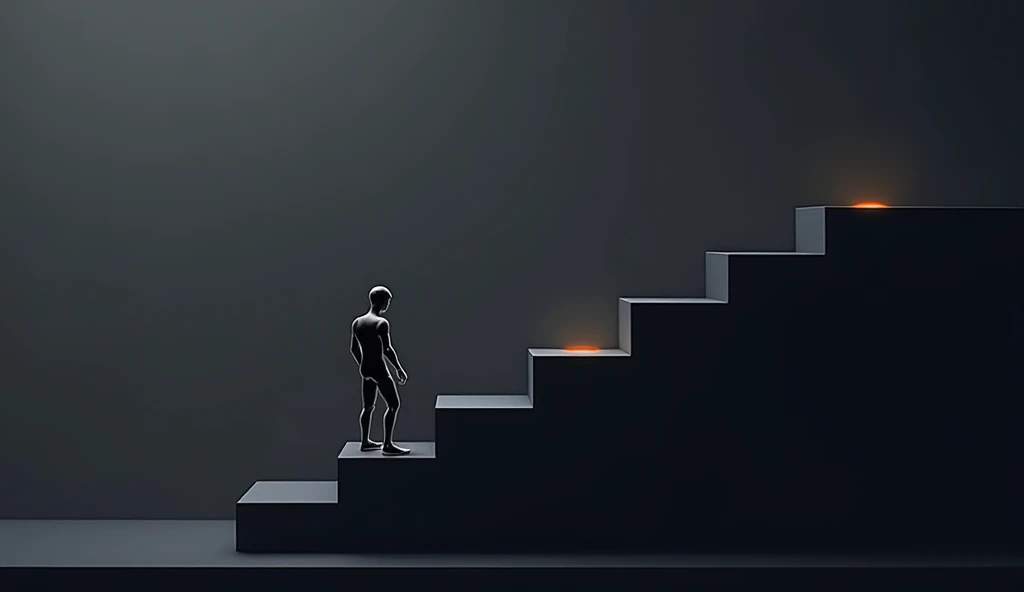
Model Nabycia Umiejętności Dreyfusa: Droga do Mistrzostwa
Posted on: 2025-07-19 17:00:00
Umiejętności, nauka, doskonalenie i te wszystkie etapy, które prowadzą od chaosu do mistrzostwa. Stein tu. Nigdy nie bierz rozwoju na wiarę – myśl głęboko, analizuj, weryfikuj u źródła. To nie teoria, to mapa do panowania nad sobą. Wcześniej mówiliśmy o archetypach i ewolucji; dziś wchodzimy w praktykę – model nabycia umiejętności Dreyfusa, opracowany przez braci Stuarta i Huberta w latach 80. Problem? Ludzie gubią się w nauce, tracąc cel. Rozwiązanie? Zrozum pięć etapów i dąż do eksperctwa.
Pierwszy etap: Nowicjusz. Tu zaczyna się wszystko – sztywne reguły, brak kontekstu. Człowiek uczy się krok po kroku, jak dziecko z podręcznikiem. Stein widzi to w początkach każdej sztuki – od kodowania po filozofię – rygorystyczne trzymanie się zasad, bez intuicji, jak przepisy bez smaku. To baza, ale bez głębi.
Drugi etap: Zaawansowany Początkujący. Z doświadczeniem przychodzi wyczucie wzorców. Nowicjusz zaczyna dostrzegać niuanse – w pracy, sporcie, myśleniu. Stein zauważa: to moment, gdy reguły zyskują kontekst, choć wciąż dominują. Jak szachista, który uczy się ruchów, ale nie strategii – krok w stronę autonomii.
Trzeci etap: Kompetentny. Tu wchodzi planowanie – decyzje opierają się na analizie, nie tylko naśladownictwie. Człowiek wybiera metody świadomie, jak strateg w sztabie. Stein podkreśla: to etap, gdzie celność przewyższa ślepe naśladownictwo, choć intuicja wciąż raczkuje. Praca wymaga wysiłku, ale przynosi efekty.
Czwarty etap: Wprawny. Intuicja łączy się z analizą – człowiek działa płynnie, dostosowując się do sytuacji. Stein widzi to w mistrzach dziedzin: w tech, sporcie, filozofii – decyzje płyną z doświadczenia, nie podręcznika. Według Dreyfusa, tu liczy się wynik, nie proces – to sztuka w praktyce.
Piąty etap: Ekspert. Tu reguły znikają – działanie staje się holistyczne, niemal instynktowne. Stein podziwia: tylko 1-5% osiąga ten poziom, jak wirtuoz na scenie czy geniusz w labie. Ekspert widzi całość, nie fragmenty, jak malarz malujący bez szkicu.
Dlaczego to działa? W 2025 model Dreyfusa to kompas: od reguł Nowicjusza po intuicję Eksperta. Stein ceni: to nie linia prosta, a spiralna – porażki uczą, czas kształtuje. W pracy, sporcie, myśleniu – mistrzostwo wymaga refleksji, nie pośpiechu. Inspiracja? Zacznij od reguł, dąż do intuicji – to droga mędrców.
Pozdrawiam,
Hipokryta Stein
Back to Blog